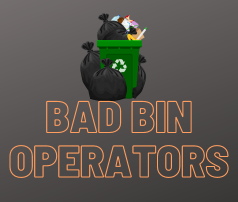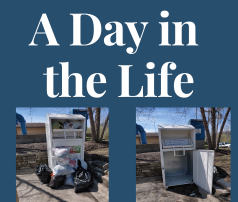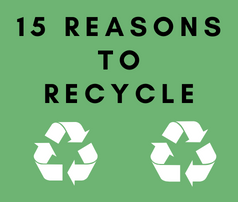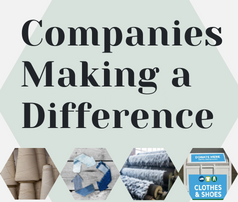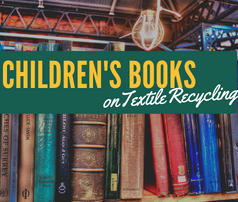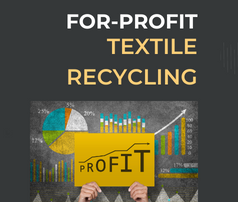 Our Company
Our Company

Chicago Textile Recycling exists under the parent company of Wipeco, Inc., a large supplier of wiping rags primarily to the Midwest. We have shared before some of the history of our company. Wipeco has changed over the years from a diaper service in the 1960’s to what we are today, providing wiping rags and other janitorial supplies to the greater Chicagoland and Midwest areas. Both Wipeco, Inc and CTR are known as for-profit companies, in contrast to non-profit. What does this mean for us, and what does it mean for you as you choose our bins and partner resale stores to recycle your old textiles?
For-Profit vs Non-Profit
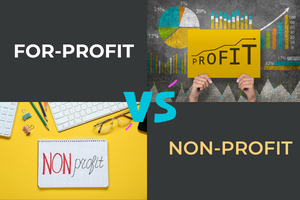
First off, what exactly is a ‘for-profit’ business? “While for-profit organizations may have a variety of goals, their primary mission is to generate profit and develop effective products and services that are valuable to consumers.” (Here) For Wipeco, Inc, this looks like offering the best janitorial and sanitation products as well as strong and absorbent wiping rags, either disposable, new cloth or recycled from our textile recycling donations. For CTR, this looks like developing effective ways to collect used textiles in the Chicagoland area for further use both locally and abroad.
How does a for-profit differ from a non-profit? “A nonprofit, by contrast, doesn’t prioritize profits and is instead dedicated to promoting a social cause or advocating for a particular standpoint.” (Here) Non-profits can (and often should) be held in high esteem because of their dedication to community needs and serving those communities. However, for-profit organizations can also offer many benefits to local communities and elsewhere.
Local Business

For-profit textile recyclers, such as Chicago Textile Recycling, are small local businesses. Because for-profit businesses generate profit and pay employees (in contrast to relying on volunteers), they help the local economy through providing jobs as well as providing local services to its community. For us, this looks like providing a local place to drop off textiles and offering destruction services for unusable uniforms from other local businesses and organizations. It also offers a specific service for the greater Chicago area and a point of pride for us to be a part of Chicago commerce and for Chicago to have a great recycling service being offered for its residents.
Benefits Global Economy
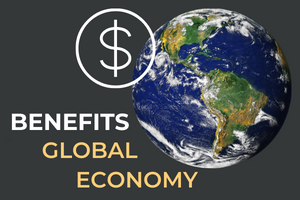
In addition to benefiting the local economy, for-profit textile recyclers benefit the global economy, as goods are exchanged and businesses are established in developing countries. Here at Chicago Textile Recycling, we have numerous relationships with other businesses both locally and globally. We send many of our recycled textiles overseas to benefit those in other areas of the world and their economies. For more info on the benefits to those receiving recycled textiles overseas, see our blog where we describe employment opportunities and affordable clothing options to those we work with. We also work with graders that can be local or international, increasing our impact on the global economy. In our blog on the process of where recycled textiles go, we talk about our work with graders during the recycling process.
Effective Resource
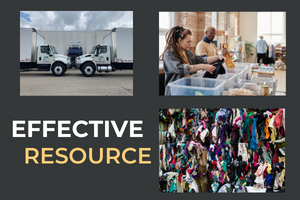
Lastly, for-profit textile recyclers such as CTR are effective resources for processing donated items. Whereas many people believe that their donations to a charity or non-profit go directly to those in need, this is often not the case. Many charities receive far more donations than they can sell or use, and thus need to find volunteers to sort and process these donations. This process can detract from their mission of serving those in need.
In contrast, many for-profit companies can and do partner with nonprofits to assist them in their mission. They do this by helping them earn funds for their donations collected without necessarily needing to provide labor to sort and process. For-profit companies have the freedom to do many things that nonprofits simply don’t have resources and time to do and thus can offer different benefits to the community.
Our Hope
Our hope in writing this blog is for more clarity for our readers around the differences between nonprofit and for-profit and how they both offer beneficial, yet different options for consumers and communities. We are thankful for the ways we have been able to serve the Chicagoland area over the decades and hope for many more years of providing a much needed resource for textile recycling.
